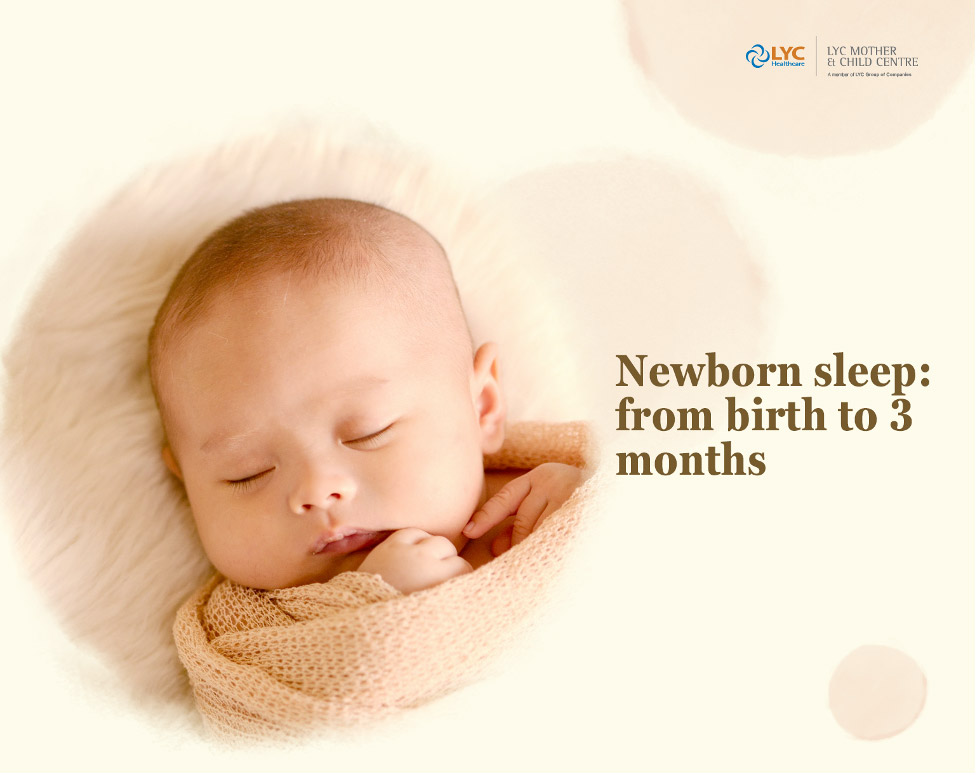
Good sleep is essential, but more so for newborn babies. In fact, sleep is so important to your baby's development that they spend most of their time sleeping.
For new parents, a newborn baby's sleep can feel like a mystery. Fortunately, knowing the optimal sleep schedule for a newborn baby can give parents peace of mind, so they can make sure their baby is getting the sleep they need to grow and develop well.
There is no standard, ideal sleep schedule for newborn babies. Newborns need up to 18 hours of sleep in a 24-hour period, most sleep an average of 16 to 17 hours.
Unlike the average child and adult who sleep long stretches of sleep at night, babies take many short naps frequently throughout the day and night. This sleep is usually spread out over the day and lasts 2 to 4 hours at a time, with babies sometimes waking up when they are hungry. Intermittent sleep allows your baby to feed frequently and receive the external stimulation needed for brain development.
Newborn babies don't understand the difference between day and night, so they can fall asleep at any time. Parents should not expect babies under 3 months to sleep through the night or to follow a specific sleep schedule. However, your baby's sleep patterns often change during the first three months of life.
Studies have found that during the first three months, babies begin to develop circadian rhythms that affect sleep. As a result, your baby starts to sleep longer at night and less during the day. In general, a one-month-old sleeps five hours a night, while a three-month-old can sleep seven hours a night, though usually not in uninterrupted sleep.
Parents can help babies sleep longer at night by giving them more light during the day during the first three months of life. Likewise, dimming the lights and keeping quiet at night may also help your baby sleep longer during the night.
A 2-month-old baby's sleep schedule might look like this:
| 6:30 am | Wake up |
| 8:00 am to 10:30 am | Nap |
| noon to 3:00 pm | Nap |
| 9pm to 11:30pm | Sleep,waking up to feed |
| 12 midnight to 3:30 am | Sleep,waking up to feed |
| 4:00 am to 6:30 am | Sleep,wake up |
The above schedule is just an example, different babies may sleep at different times, your baby’s sleep patterns may vary from day to day, depending on the parents' schedule and activities.
3-month-olds don't have a set sleep schedule to follow, and like newborns, most 3-month-olds should sleep multiple times between morning and evening for a total of 16 to 17 hours a day. However, there are some differences in the sleep patterns of 3-month-old babies compared to newborn babies.
By 3 months, many babies sleep slightly longer at night and shorter during the day. Generally speaking, a 3-month-old baby sleeps 7 hours at night, while a 1-month-old baby sleeps an average of 5 hours at night. 3-month-olds may also wake up less often during the night compared with younger babies, with 3-month-olds waking two or three times a night, and 1-month-olds waking an average of four times a night.
For babies, sleep is very important for their rapidly developing brain and body. Various studies have shown that your baby's sleep is essential for physical development. In fact, newborn babies learn while they sleep, and sleep is positively associated with improvements in memory, language, executive function, and physical development.
Surprisingly, sleep also provides opportunities for babies to develop motor skills. The researchers believe that the twitching movements babies make during sleep are not just movements associated with dreams. Twitches during sleep may be your baby's brain strengthening its functions and teaching your baby about their limbs and how to control them, and this helps with their motor skills development
Some babies start sleeping through the night around 6 months. By 6 months of age, about 60 percent of babies sleep at least 6 hours straight each night. By age 1, about 70 percent of babies sleep at least 6 hours straight each night.
Babies 3 months and younger usually don't sleep through the night without waking up to feed. Even if the baby is 1 year old, parents need not worry if they sleep through the night uninterrupted.